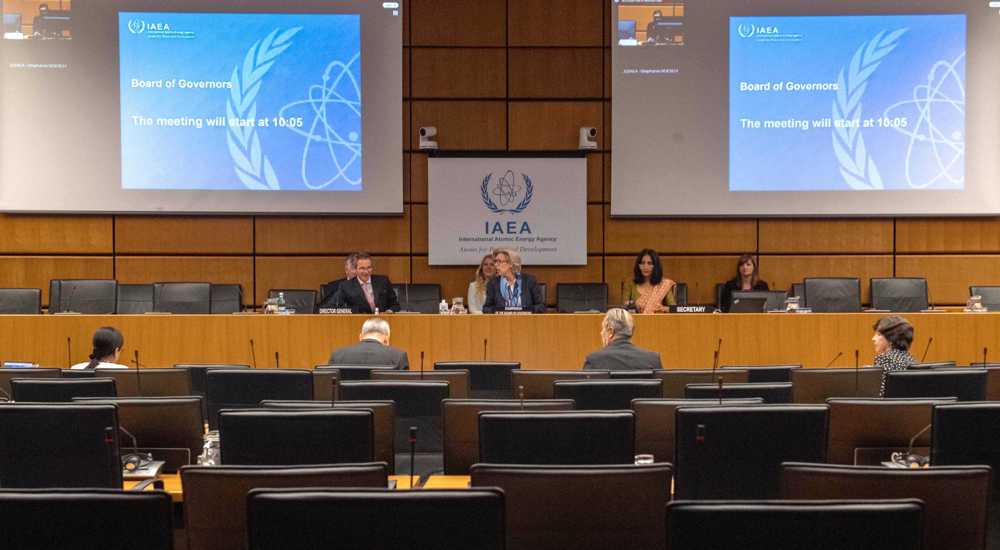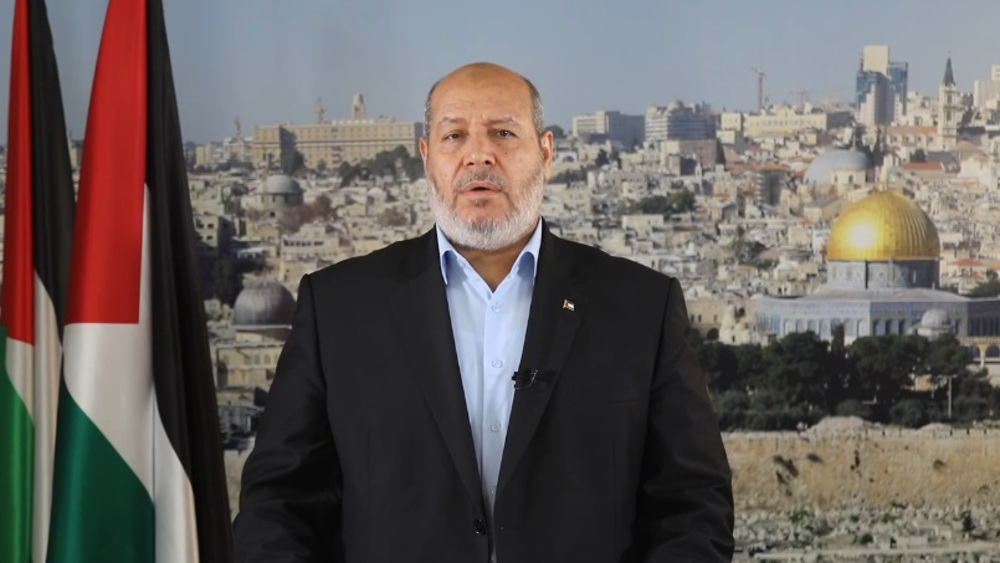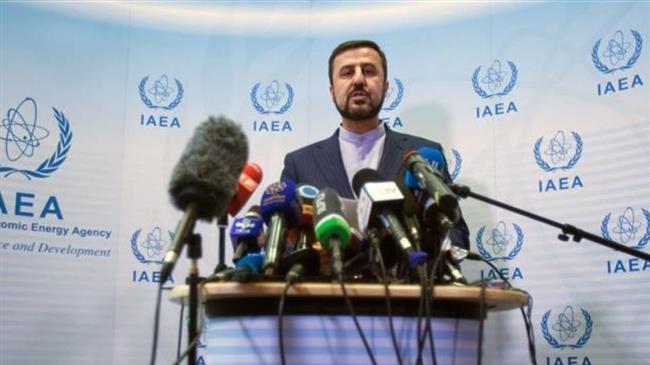Russia slams Europe’s dual standards on JCPOA, ‘destructive’ US actions
Russia has censured the European signatories to a 2015 nuclear deal for putting pressure on Iran over its nuclear program in spite of claiming they remain committed to the accord, saying such problems are rooted in “destructive” measures adopted by the United States against the accord.
In a comment published on the Russian Foreign Ministry’s website on Monday, Spokeswoman Maria Zakharova hit out at the UK, Germany and France for introducing an anti-Iran resolution, which was passed by the International Atomic Energy Agency (IAEA)’s Board of Governors last week.
She stressed that the European trio’s actions fueling tensions around Iran’s nuclear activities at the UN atomic watchdog contradicted their claims of commitment to the Joint Comprehensive Plan of Action (JCPOA).
“Reassurances of the British, German and French colleagues that they are committed to the Joint Comprehensive Plan of Action on the Iranian nuclear program and are looking for ways to minimize negative effects of American sanctions against Iran run counter to their actions to heighten tensions surrounding the Iranian nuclear program in the IAEA,” Zakharova said.
The resolution was passed on Friday with 25 votes in favor. Russia and China voted against, while seven countries — Azerbaijan, Pakistan, India, Mongolia, South Africa, Thailand, and Niger — abstained.
The IAEA resolution called on the Islamic Republic to “fully cooperate” with the IAEA and “satisfy the Agency’s requests without any further delay,” including by providing “prompt” access to two nuclear sites.
Zakharova further said the IAEA representatives’ access to Iranian nuclear facilities is possible within the framework of existing standard procedures.
“We are certain that all questions arising, including the agreement of access to facilities that the agency is interested in, could be resolved in the framework of standard procedures of cooperation between states and the IAEA Secretariat.”
“It is not coincidental that the resolution in the end was not supported by states representing more than half of the world’s population, including two UN Security Council permanent members,” she added.
The Russian diplomat also emphasized that Moscow and Beijing had previously warned the resolution’s sponsors that it would be counterproductive.
“We repeatedly urged against playing up to backers of the policy of maximum pressure on Iran,” she said.
Iran signed the JCPOA with six world states — namely the US, Germany, France, Britain, Russia and China — in 2015.
However, Washington’s unilateral withdrawal in May 2018 and the subsequent re-imposition of sanctions under the so-called maximum pressure campaign against Iran have left the future of the historic agreement in limbo.
Iran remained fully compliant with the JCPOA for an entire year, waiting for the co-signatories to honor their commitments.
As the European parties failed to do so under pressure from the US, Tehran moved in May 2019 to suspend its JCPOA commitments under Articles 26 and 36 of the deal covering Tehran’s legal rights.
The Russian official further blamed Washington’s “destructive” measures for impeding the JCPOA’s implementation.
“The root cause of all difficulties and faults in the process of implementation of the Iranian nuclear deal has been and remains the destructive actions of the United States who unilaterally quit the JCPOA and to this day continues to systematically violate demands of UN Security Council Resolution 2231,” she pointed out.
Zakharova’s comments come as the US is preparing for yet another hostile move at the UN Security Council to kill the Iran deal.
Bloomberg reported on Tuesday that the US has shared a draft resolution with UNSC members that would extend a UN arms ban on Iran indefinitely. Under UNSC Resolution 2231, which enshrined the JCPOA, the embargo will expire on October 18.
Citing diplomats, the report said the Security Council is set to begin negotiations on the resolution on Wednesday.
The Russian official further called on all parties to the JCPOA to reaffirm their “unwavering commitment” to the deal, saying July 14 — which marks the fifth anniversary of the deal’s inking would be a “great occasion” for doing so.
“We are urging the European parties…to seize this opportunity to return to the unifying agenda and continue fighting for the common good,” she added.
UNRWA unraveled amid Israel's allegations, reduced intl. support
Palestinian journalist, a Sobh Media Festival awardee, killed in Gaza hours before truce
Jan. 15: ‘Axis of Resistance’ operations against Israeli occupation
VIDEO | US fires: Criticism mounts over govt. failure to respond
VIDEO | Fears, hope in Gaza amid intensified ceasefire efforts
VIDEO | Press TV's news headlines
Hamas: Ceasefire agreement result of steadfastness, resistance in Gaza over 15 months
Hamas thanks Iran, Resistance Front following achievement of ceasefire in Gaza
















 This makes it easy to access the Press TV website
This makes it easy to access the Press TV website